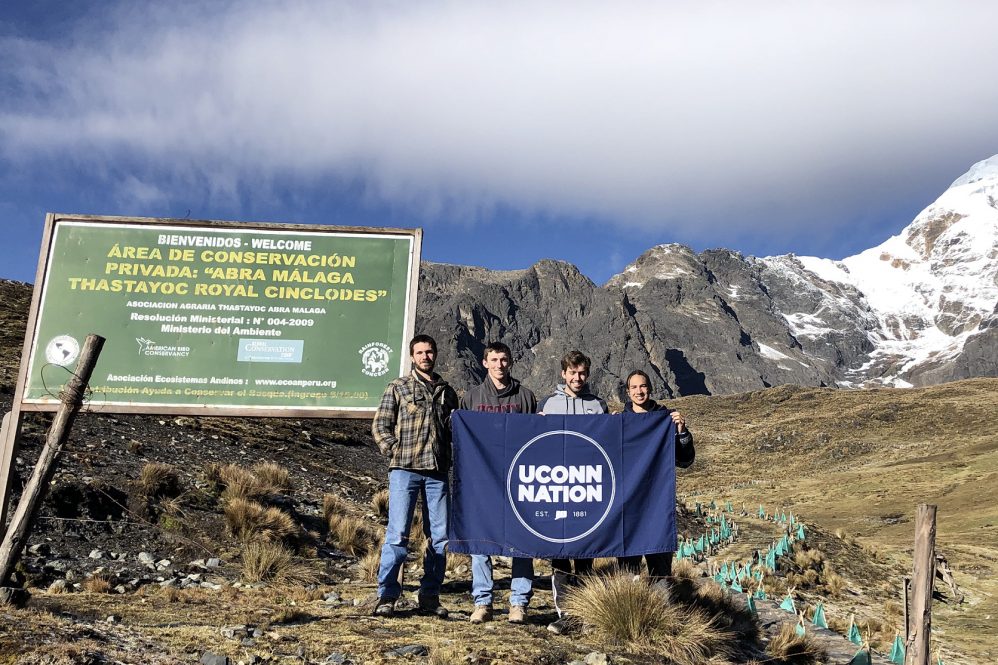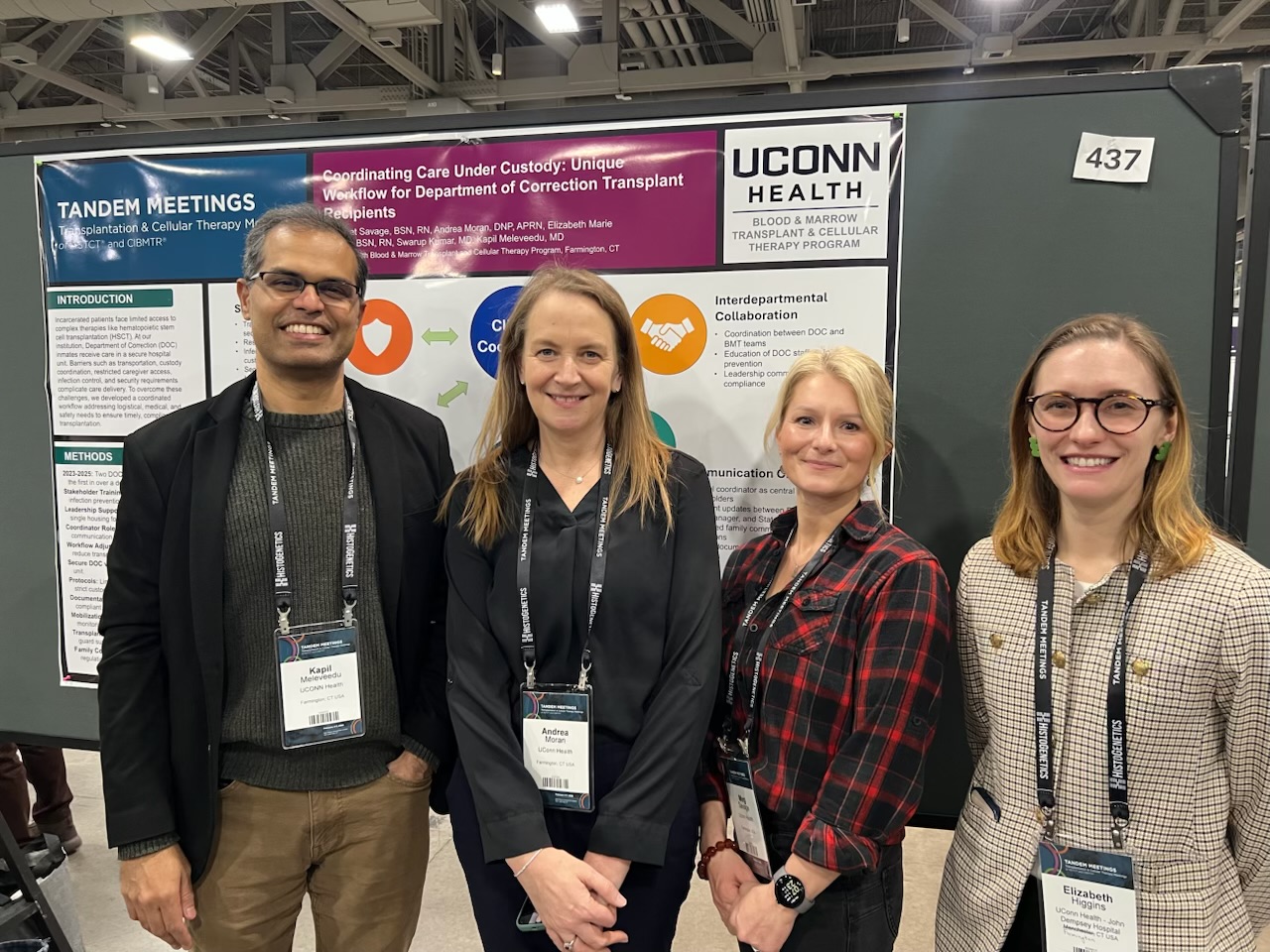By John Giardina
On February 24, about 30 people gathered at the Student Union to recognize and celebrate the important work performed in the last year by the UConn chapter of Engineers Without Borders  (EWB). Members of EWB presented their current projects and described the ways in which they are attempting to change the lives of people in some of the most impoverished communities in the world. The speakers included the president of EWB-UConn, Ethan Butler (CHEG ’12), and EWB members Aaron Aguirre-Castillo (CE ’11), Dana Boyer (ENVE ’12), Jorge Simbaqueba (CE Graduate Student), and Scott Cipoletti (CE ’12). Each highlighted the impressive work accomplished by the group over the past year.
(EWB). Members of EWB presented their current projects and described the ways in which they are attempting to change the lives of people in some of the most impoverished communities in the world. The speakers included the president of EWB-UConn, Ethan Butler (CHEG ’12), and EWB members Aaron Aguirre-Castillo (CE ’11), Dana Boyer (ENVE ’12), Jorge Simbaqueba (CE Graduate Student), and Scott Cipoletti (CE ’12). Each highlighted the impressive work accomplished by the group over the past year.
EWB resides in a special class of college service groups. They are not only serving those who are less fortunate, but also practicing their professional craft at thesame time. Their mission is to apply their relatively rare skills toward solving engineering problems, all the while adhering to the political, social and cultural boundaries of the societies they are serving. Mr. Butler emphasized this point, saying, “We focus on the implementation of sustainable engineering projects. There are many ways in which you can help a community, but we aim to utilize our engineering expertise in order to support their development. We want to insure that, even if our community partnership comes to a close, the projects we implement can continue to work.”
Target: Nicaragua
EWB’s first project, focusing on a small, impoverished Nicaraguan village called La Prusia, is led by Ms. Boyer and Mr. Cipoletti. The people of La Prusia are all but cut off from the nearby city of Granada, with the single connecting road almost entirely unusable. This is because the road sustains chronic, destructive flooding during the rainy season, which then destroys the path and makes it impassible during the dry season. The lack of a usable road inhibits the citizens of La Prusia from getting jobs, selling goods, receiving better health care, and obtaining higher education. The lack of opportunities for bettering their circumstances stifles the citizens of La Prusia, keeping them in a continuous state of poverty. EWB members plan to repair the road connecting La Prusia and Granada, opening up a lifeline that can bring vitality to the people along the road. Read more about the team’s activities in La Prusia here.
EWB members want to return to La Prusia for further inspection in hopes that, soon, they may be able to begin work on the roadway.
Target: Ethiopia
Chapter members are pursuing a second project, involving construction of water purification systems in Ethiopia. Water sources in Ethiopia are ravaged by both surface and ground water contamination by toxic metals and other impurities. UConn EWB members hope to find a way to place sustainable filtration systems in villages throughout Ethiopia. They are investigating alternative water purification systems and are particularly interested in a novel system employing forward osmosis, which is currently being researched in the laboratory of Dr. Jeffrey McCutcheon. They also intend to conduct on-the-ground assessment surveys to better understand the needs of the people they will be serving while also gathering certain health metrics. In the long-term, the team hopes to create purification systems using easily obtainable, local materials, to directly serve the needs of the people.
Honoring Service
During the evening, the UConn EWB team also acknowledged the important contributions made by students, faculty and private-sector mentors. Among those honored were advisor-mentors Domenico Carusone (’12 ME), Bob Benzinger, a UConn alumnus from The Hartford, and Gerry Hardisty of CES, Inc. UConn faculty who have advised the group were also lauded, including Dr. Maria Chrysochoou (Department of Civil & Environmental Engineering – CEE), Dr. McCutcheon, and Dr. Amvrossios Bagtzoglou (Department Head, CEE). Student Dana Boyer and Scott Cipoletti were singled out for special recognition. In addition, the group expressed thanks to Dean of Engineering Mun Choi, Assistant Dean Marty Wood, and GEI Consultants for their generous support and funding of EWB.
Donations & Volunteers Needed
Through its projects, EWB-UConn is becoming a model for student service. They cannot perform their work, however, without their dedicated volunteers and generous donors. The cost of the La Prusia project alone will cost about $30,000 per year, for five years. They are, accordingly, always open to new volunteers and donations. Mr. Butler describes EWB as creating the next generation of leaders. “EWB helps students develop the sort of expertise required for the future issues faced by our society and engineers: global warming, pollution control, water availability, and more,” he says. “EWB creates engineers who are socially minded and dedicated to solving these global problems.” After seeing the tasks EWB engineers have already accomplished, one can expect to see them solving problems at the forefront of their fields for years to come. More information about EWB-UConn and its work can be found here. Donations can be submitted online here.



